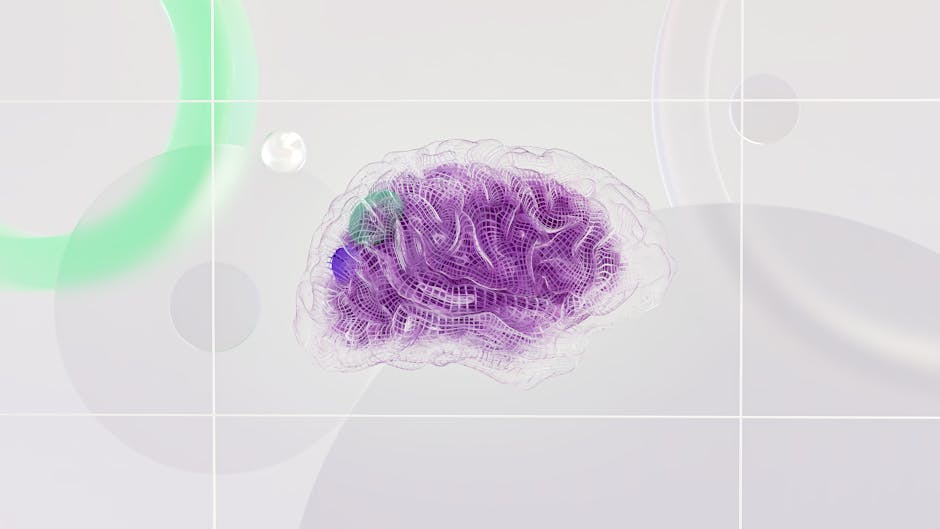Ever wondered how your brain manages to store and retrieve countless memories? This intricate process involves three main stages: encoding, storage, and retrieval. Understanding these stages can help us improve our memory and learning abilities. Let’s delve into the fascinating world of memory formation and retrieval.
Key Takeaways
- Memory formation and retrieval involve three main stages: encoding, storage, and retrieval.
- Encoding is the process of transforming information into a form that can be stored in memory.
- Storage involves maintaining information in memory over time.
- Retrieval is the process of accessing and bringing into consciousness the information stored in memory.
- Various strategies can enhance each stage of memory, improving overall memory function.
Introduction to Memory Formation and Retrieval
Definition of memory
Memory is a complex cognitive process that allows us to encode, store, and retrieve information. It’s an essential part of our learning, conditioning, and overall cognitive development.
Overview of the memory process
The memory process involves three main stages: encoding, storage, and retrieval. Each stage plays a crucial role in how we remember information.
Importance of understanding memory stages
Understanding these stages can help us improve our memory and learning abilities. It can also shed light on why we sometimes forget information and how to prevent it.
Brief introduction to encoding, storage, and retrieval
Encoding is the first stage, where we process information and transform it into a form that can be stored. Storage is the maintenance of this information over time. Finally, retrieval is the process of accessing and bringing this information into consciousness.

Encoding: The First Stage of Memory
Definition and significance of encoding
Encoding is the process of transforming sensory input into a form that can be stored in memory. It’s the first step in creating a new memory.
Process of encoding
Encoding involves focusing attention on the material, processing the information, and linking it to existing knowledge.
Focusing attention on material
Our attention acts as a spotlight, highlighting the information we need to remember. Without attention, encoding is less likely to occur.
Processing information
We process information by associating it with other information, categorizing it, and breaking it down into manageable chunks.
Linking new information to existing knowledge
By linking new information to what we already know, we create a network of associations that make the information easier to remember.

Storage: The Second Stage of Memory
Definition and importance of storage
Storage is the maintenance of encoded information in memory over time. It’s crucial for our ability to remember past experiences, learned facts, and skills.
Types of memory storage
Memory storage can be divided into sensory memory, short-term memory (STM), and long-term memory (LTM).
Sensory memory
- Role and characteristics: Sensory memory holds information from our senses for a very brief period, allowing us to perceive the world as a continuous stream.
- Duration and function: It lasts for only a few seconds but plays a crucial role in our perception of the world.
Short-term memory (STM)
- Role and characteristics: STM holds a small amount of information in an active, readily available state for a short period.
- Capacity and duration: It can hold about 7 items for about 20 seconds.
- Importance of rehearsal: Rehearsal, or the process of repeatedly thinking about or saying information, can help keep information in STM longer.
Long-term memory (LTM)
- Role and characteristics: LTM is the final stage of storage, capable of holding vast amounts of information for a long time.
- Capacity and duration: It has virtually unlimited capacity and can hold information for a lifetime.
- Types of long-term memory: LTM can be divided into explicit memory (conscious recall of facts and events) and implicit memory (unconscious recall of skills and habits).

Retrieval: The Final Stage of Memory
Definition and significance of retrieval
Retrieval is the process of accessing and bringing into consciousness the information stored in memory. It’s the final stage of memory and is crucial for using the information we’ve learned.
Process of retrieval
Retrieval involves accessing stored information and is influenced by cues and context.
Accessing stored information
We can access information in memory either by recall (bringing information to mind without cues) or recognition (identifying information that we’ve previously learned).
Influence of cues and context
Cues, such as words or images associated with the information, can help trigger retrieval. Similarly, the context in which we learned the information can also facilitate retrieval.
Challenges in retrieval
Despite our brain’s remarkable capacity for storing information, retrieval can sometimes be challenging.
Forgetting
Forgetting can occur due to various reasons, such as failure to encode the information properly, decay of memory traces over time, or interference from other information.
Factors affecting retrieval success
Several factors can affect retrieval success, including the type and amount of encoding, the match between encoding and retrieval conditions, and the individual’s cognitive and emotional state.

Strategies for Enhancing Memory
Techniques to improve encoding
Making material meaningful and using mnemonic devices can enhance encoding.
Making material meaningful
By finding personal relevance in the material, we can enhance its encoding. This can involve relating the material to our own experiences or goals.
Use of mnemonic devices
Mnemonic devices, such as acronyms or visual imagery, can also enhance encoding by providing additional cues for retrieval.
Methods to enhance storage
Rehearsal techniques and organizing information can enhance storage.
Rehearsal techniques
Rehearsal, or the process of repeatedly thinking about or saying information, can help keep information in short-term memory and promote its transfer to long-term memory.
Organizing information
Organizing information into meaningful groups or hierarchies can also enhance storage by providing a structure that facilitates retrieval.
Strategies for better retrieval
Using contextual cues and practicing retrieval can enhance retrieval.
Contextual cues
Recreating the context in which we learned the information can provide cues that trigger retrieval.
Practice retrieval
Practicing retrieval, or repeatedly recalling the information, can strengthen memory traces and enhance retrieval.
Conclusion
Recap of the stages of memory formation and retrieval
Memory formation and retrieval involve three main stages: encoding, storage, and retrieval. Each stage plays a crucial role in how we remember information, and understanding these stages can help us improve our memory and learning abilities.
Importance of understanding and improving memory
Memory is a fundamental aspect of our cognitive functioning, influencing how we learn, think, and behave. By understanding and improving our memory, we can enhance our learning abilities, increase our productivity, and enrich our personal and professional lives.
Final thoughts on memory’s role in learning and everyday life
Memory is more than just a record of our past. It’s a crucial tool that shapes our present and future, guiding our decisions and actions. By understanding the stages of memory formation and retrieval, we can harness the power of our memory to its fullest potential.
For more insights into the fascinating world of memory and cognition, check out our articles on memory processes, learning and conditioning, enduring patterns of thoughts, feelings, and behaviors, acquiring new knowledge and behaviors, and cognitive development in children.
Sources:
– How Memory Works – Harvard Bok Center
– Stages of Memory – Lesley University
– Memory: Encoding, Storage, Retrieval – Noba
Unlocking the Mysteries of Your Mind: A FAQ Journey Through Memory Formation and Retrieval
What are the main stages of memory formation?
Memory formation involves three main stages: encoding, storage, and retrieval. Encoding is the process of taking in information and processing it into a form that can be stored. Storage refers to how this information is held in the brain over time. Retrieval is the act of accessing and bringing into consciousness the information stored in the brain.
How does the brain encode information?
The brain encodes information through a complex process that involves focusing attention on the relevant sensory input, interpreting this input based on past experiences, and then organizing it in a way that makes it easier to recall later. This can involve both automatic and effortful processing, depending on the nature of the information and how much attention is given to it.
What is the difference between short-term and long-term memory?
Short-term memory, also known as working memory, holds information temporarily for analysis and is limited in capacity, typically lasting only 20 to 30 seconds. Long-term memory, on the other hand, refers to the storage of information over extended periods, from minutes to a lifetime. Information moves from short-term to long-term memory through processes such as rehearsal and meaningful association.
Can you improve your memory? If so, how?
Yes, memory can be improved through various techniques and practices. These include regular physical exercise, which enhances brain health; mnemonic devices to aid in encoding and retrieval; adequate sleep for memory consolidation; and continuous learning and brain-challenging activities to strengthen neural connections. Healthy eating and stress management also play significant roles.
What role does sleep play in memory?
Sleep plays a critical role in memory consolidation, the process by which short-term memories are strengthened and transformed into long-lasting memories. During sleep, particularly during the deep stages, the brain reorganizes and optimizes memories for long-term storage. Lack of adequate sleep can significantly impair both the formation of new memories and the retrieval of existing ones.
How does aging affect memory?
Aging can affect memory in various ways, often leading to a decline in cognitive functions, including memory. This decline can be attributed to several factors, such as decreased brain volume, reduced blood flow to the brain, and the accumulation of proteins that can impair cognitive function. However, not all types of memory are equally affected, and many individuals maintain high cognitive function well into old age.
What is the role of emotions in memory formation?
Emotions play a significant role in memory formation. Emotional experiences are often remembered more vividly and for longer periods than neutral events. This is because emotional arousal activates the amygdala, which in turn enhances the storage of memories in other brain regions, making these memories more accessible for future retrieval. However, extreme stress and negative emotions can impair memory formation.
Are there any techniques to enhance memory retrieval?
Several techniques can enhance memory retrieval, including the practice of retrieval itself, which strengthens the memory and makes future retrieval easier. Other strategies include organizing information in a meaningful way, using mnemonic devices, and creating associations between new information and what is already known. Regular review and practice, as well as maintaining a healthy lifestyle, can also improve retrieval efficiency.
What is memory consolidation?
Memory consolidation is the process by which temporary, fragile memories are transformed into stable, long-term memories. This process involves the strengthening of the neural connections that represent memories and is believed to occur primarily during sleep. Consolidation helps to integrate new information with existing knowledge, making it more resistant to forgetting.
How does stress affect memory?
Stress can have both positive and negative effects on memory. In the short term, stress can enhance the formation of memories due to the release of adrenaline and other stress hormones. However, chronic stress can impair both memory formation and retrieval by damaging brain regions such as the hippocampus, which is crucial for memory. Managing stress through relaxation techniques and lifestyle changes can help mitigate these effects.



